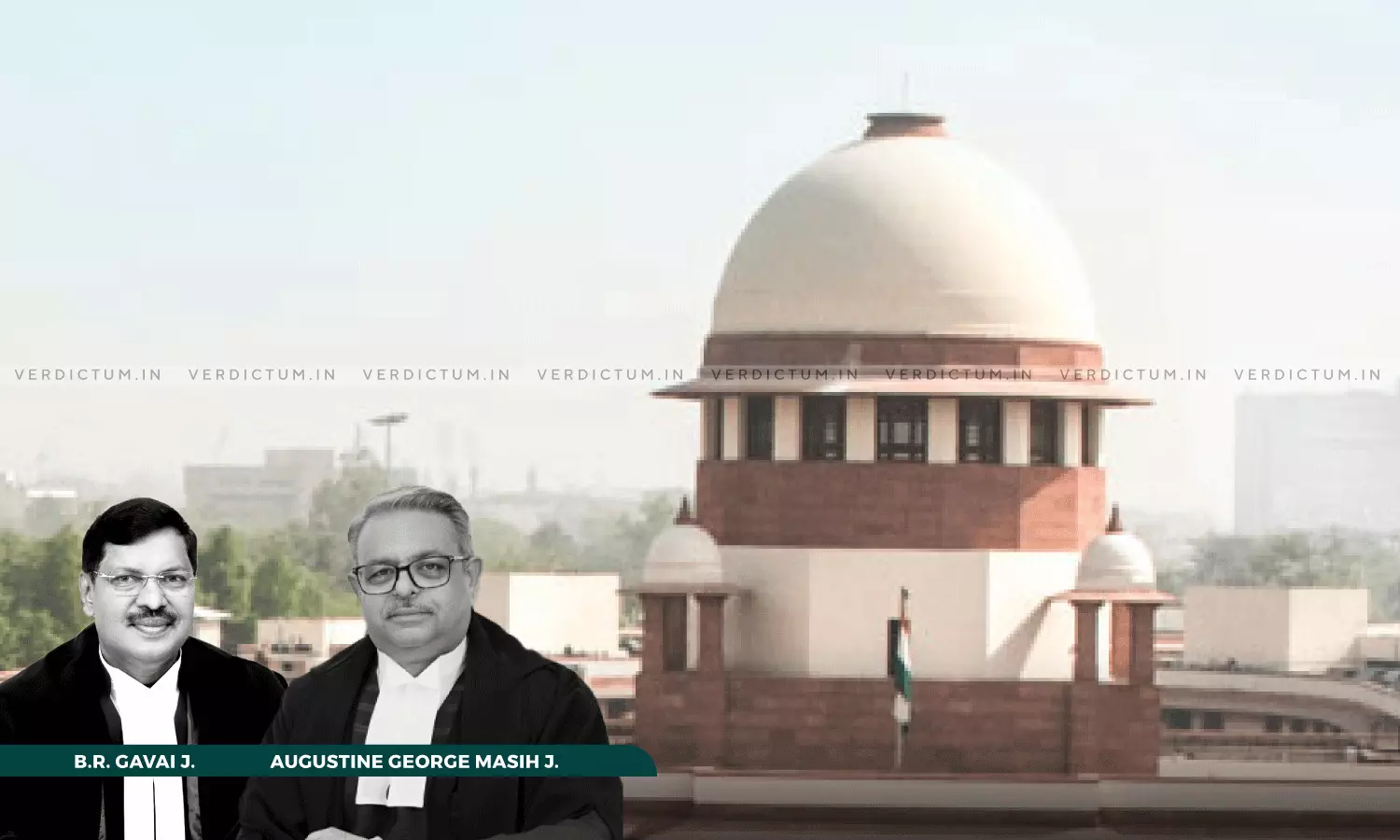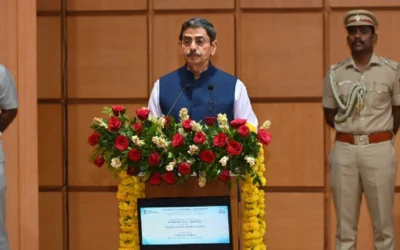Supreme Court Expresses Anguish Over Questions Framed By Consortium Of National Law Universities For CLAT

The Supreme Court has expressed its anguish over the questions framed by the Consortium of National Law Universities (NLUs) for the Common Law Admission Test (CLAT).
The Court was deciding Civil Appeals filed against the Judgment of the Delhi High Court’s Division Bench.
The two-Judge Bench comprising Justice B.R. Gavai and Justice Augustine George Still observed, “At the outset, we must express our deep anguish regarding the callous and casual manner in which the Respondent No.1 has been framing questions for the Common Law Admission Test (hereinafter referred to as, “CLAT”), an examination on the basis of which meritorious candidates get entry into the prestigious National Law Universities across the country.”
Senior Advocates K. K. Venugopal and Gopal sankaranarayanan appeared for the Appellant while Senior Advocate Raj Shekhar Rao and Advocate Dhanesh Relan appeared for the Respondents. Senior Advocate Balbir Singh appeared for the Intervenor(s).

Brief Facts
The Division Bench of the High Court was seized of the Letter Patents Appeals which were filed challenging the Judgment and final Order dated December 20, 2024 passed by a Single Judge as well as a batch of Writ Petitions which were filed across various High Courts and which had been transferred to it by the Supreme Court. The Supreme Court had constituted a committee to inter-alia look into the shortcomings in the conduct of CLAT. It had specifically observed that the idea of entrusting the task of monitoring the conduct of the entire examination to different Law Universities every year also needs to be re-visited.
The said committee’s report was received but it was placed before a Bench seized of WP(C) No. 600 of 2015 titled as “Shamnad Basheer v. Union of India and Others”. The sole Petitioner in the said matter, however, passed away. Several questions and/or the answers thereto were found to be not suitable from the Judgment of the High Court and it had, therefore, passed an Order with regard to various questions. However, in the Appeals, the Apex Court was concerned only with six questions i.e., Question Nos. 56, 77, 78, 88, 115, and 116.
Court’s Observations
The Supreme Court in the above regard, noted, “It can thus be seen that the answer option (a) that the fundamental duty to preserve and protect the natural resources is upon the State only, is totally wrong which is found to be so even on a perusal of the material provided. … Similarly, the answer option (b) that the citizens alone have the fundamental duty to preserve and protect natural resources, is equally wrong.”
The Court remarked that the Apex Court has time and again emphasized that it is the duty of both the State and its citizens to protect and preserve the natural resources.
“We, therefore, fail to understand as to why a candidate who has marked answer option (c) should not be awarded the marks for this question. … We, therefore, set aside the direction of the High Court qua Question No. 56 and further direct the Respondent No.1 to award positive marks to all the candidates who selected either answer option (c) or (d) and only those candidates who selected either answer option (a) or (b) should be given the negative marks in Question No. 56”it directed.
The Court further set aside the direction of the High Court qua Question No. 77 and directed the Respondent to give positive marks to the candidates.
“We are in agreement with the High Court that the answer option (c) is the correct answer for Question No. 78. We, therefore, do not interfere with the finding of the High Court insofar as Question No. 78 is concerned. … The material provided for Question No. 88 is also the same as that for Question No. 85. In our view, therefore, if the Respondent No.1 thought it fit to delete Question No. 85, it ought to have deleted Question No. 88 as well”it added.
The Court also set aside the direction of the High Court qua Question No. 88 and directed the Respondent to delete said question number.
Conclusion
Furthermore, the Court said, “We, however, on a perusal of the material provided, find that for answering Question No. 115, the candidates will have to undergo a detailed mathematics analysis, which is not expected in an objective test. … We, therefore, set aside the direction issued by the Division Bench of the High Court qua Question No. 115 and further direct Respondent No.1 to delete Question No. 115.”
The Court was of the view that if Question No. 115 is deleted, Question No. 116 must also be deleted as a necessary corollary because the material provided for answering the said question is the same as that for Question No. 115.
“We find that in order to put all the candidates on equal footing, Question No. 116 be deleted from all the Sets as well. … We, therefore, set aside the direction of the Division Bench of the High Court qua Question No. 116 and further direct Respondent No.1 to delete Question No. 116”it concluded.
Accordingly, the Apex Court disposed of the Appeals, modified the impugned Judgment, and directed the Respondent to amend the answer key, revise the marksheet and re-publish/notify the final list of candidates forthwith and commence with the counselling within 2 weeks.
Cause Title- Siddhi Sandeep Ladda v. Consortium of National Law Universities and Another (Neutral Citation: 2025 INSC 714)
Appearance:
Senior Advocates Kk Venugopal, Gopal Sankaranarayanan, Raj Shekhar Rao, Balbir Singh, Deepak Nargolkar, Aors Soumik Ghosal, KRISHAN KUMAR, PRITHA Srikumar Iyer, Anurag, Anurag, MP Devanath, Namat Suri, Udhyam Mukherjee, Advocates Dhanesh Relan, Siddhant Kohli, Vishal Sinha, Samruthi Gangadhar, Gaurav Singh, Ashutosh Chaturvedi, Nitin Pal, Harsh Kumar Singh, Arun Sri Kumar, Shubhan Thakur, Wamic wasim, hanuman singh, abhishek anand, rahul kumar, only sameer rohatgi, and kartikey singh.

